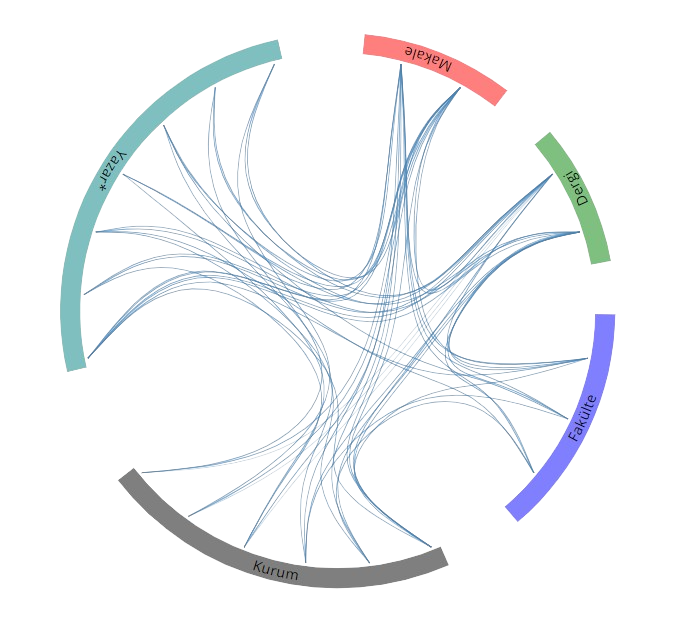https://phy.princeton.edu/peopleProf. Dr. Ekrem Aydıner (Kısa Akademik Biyografisi)
Aydıner, Parçacık Fiziği, Kozmoloji, Beyin Dinamiği, Psikiyatrik Hastalıkların Modellenmesi, Epilepsi, Kuantum Teknolojileri, Kaos Teorisi, Faz Geçişleri, Kompleks Sistemler, Ekonomi Fiziği, Sosyo-Fizik, Biyolojik Sistemlerin Modellenmesi, Düşük Sıcaklık Fiziği ve Yoğun Madde Fiziği alanlarında araştırmalar yapmaktadır.
Aydıner; Ankara Üniversitesi Fizik Bölümü'nden mezun olmuştur. Doktorasını Çukurova Üniversitesi Fizik Bölümü'nde tamamlamıştır. Çukurova Üniversitesi, Feza Gürsey Enstitüsü, Dokuz Eylül Üniversitesi, İstanbul Üniversitesi ve Koç Üniversitesi gibi seçkin üniversite ve araştırma enstitülerinde görev yapmıştır. Yurt dışında Leeds Universitesi (İngiltere), Potsdam, von Humboldt Universiteleri (Almanya) ve Princeton Üniversitesi (USA) gibi birçok üniversitede misafir araştırmacı olarak çalışmıştır.
Fizikte dünya çapında tanınırlığı ve saygınlığı olan Aydıner, birçok alanda evrensel bilime önemli katkıları olmuştur. Bu katkılar aşağıda özetlenecektir.
Aydıner, ülkemizin fizikte en saygın toplantıları olan Yüksek Enerji Fiziği, Astrofizik ve Kozmoloji Çalıştayı’nın ve İstanbul Yoğun Madde Fiziği Toplantısı’nın düzenlenmesine öncülük etmiştir. Bu toplantıların yürütücüsüdür.
Aydıner, organizasyon komitesinde Nobel Fizik Ödüllü bilim insanlarının yer aldığı ve dünya fiziğin en büyük isimlerinin buluştuğu, Nobelliler toplantısı olarak bilinen Frontiers of Fundamental Physics sempozyumunun uluslararası organizasyon komitesi başkanı ve yürütücüsüdür.
Aydıner, akademik hayatında şimdiye kadar, fizik, mühendislik ve sağlık bilimler alanında yaklaşık yüz farklı konuda dersler vermiştir.
Aydiner, şimdiye kadar 16 Yüksek Lisans ve 10 Doktora öğrencisi yetiştirmiştir.
Aydıner, son beş yıl içerisinde yüzün üzerinde davetli konuşma vermiştir.
Aydıner, çoğunluğu tek yazarlı ve çoğunluğu Q1 olan yüz civarında özgün makale yayınlamıştır.
Aydiner, Fizik ve diğer alanlarda en saygın bilimsel dergilerde yaklaşık 50 dergide (Nature, Medicine, Physical Review Letters, PRA, PRB, PRD, PRE, PRX, presearch, Physica A, QINP, EPJC, EPJD, EPJB, INP, PLA, PLB, EPL, IJTP, Physica Scripta, Frontiers in Physics, Canadian Journal of Physics, Universe, Physics of Dark Universe, Anealen der Physik, Universe, Symmetry, IJMPB, IJMPD…) hakemlik yapmaktadır.
Aydıner’in Fiziğe keşif niteliğinde yüksek prestijli katkıları:
1) Karadelik fiziğinde Joule-Thomson Genişlemesinin keşfi: Aydıner, Öğrencisi Dr Özgür Ökcü ile birlikte "Joule-Thomson expansion of the charged AdS black holes" (Eur. Phys. J. C 77 24 (2017)) ve "Joule-Thomson expansion of Kerr-AdS black holes" (Eur. Phys. J. C 78 123 (2018)) başlıklı çalışmaları yayınlamıştır. Bu çalışmalarda ilk kez karadeliklerde Joule-Thomson genişlemesi teorik olarak öngörülmüştür. Literatürde "öncü keşif" olarak adlandırılan bu çalışmalar karadelik fiziğinde yeni bir alan açmıştır. Her iki çalışma temel alınarak uluslararası araştırmacılar tarafından şimdiye kadar 400 civarında SCI makale yayınlanmış olup her iki makale toplamda 7159 üzeri okunmuş/indirilmiştir.
2) Kaotik Evren Teorisi: ilk kez 2018 yılında Aydıner tarafından ortaya konmuştur. Bilindiği gibi standart kozmolojide yaygın olarak kabul gören Büyük-Patlama Teorisi evrenin ortaya çıkışı, evrenin öncesi, evrimi, geleceği, galaksilerin ortaya çıkışı, evrenin farklı evrimsel periyotları gibi birçok konuda temel soruları yanıtlayamamaktadır. Büyük-Patlama Teorisinin yerine geçebilecek çevrimsel evren teorileri, kuantum ilmek teorileri önerilmiştir. Aydıner, bu teorilerden farklı olarak yeni bir kozmoloji teorisi olan Kaotik Evren Teorisini 2018 yılında yayınlamıştır. Önerilen bu teori kozmolojiye yeni bir perspektif sunmakla kalmaz standart kozmolojinin yanıtsız bıraktığı pek çok önemli soruya yanıt getirmektedir. Kaotik Evren Teorisi alternatif ve kapsayıcı yeni bir kozmoloji teorisidir. İlgili makale 2019 yılında en çok okunan 2. Makale seçilmiştir. Makale şimdiye kadar 34 bine yakın okuma almış/indirilmiştir. Bakınız: Sci. Rep. 8 721 (2018)
3) Late time transition and hybrid scale factor: Bu makalede fiziksel kozmolojinin en büyük problemlerinden birisi olan madde baskın dönemden karanlık enerji baskın döneme geçiş problemi çözülmüştür. Gözlemsel kozmoloji evrenin yalnızca genişlemediği aynı zamanda ivmeli bir şekilde genişlemeye başladığını keşfetmiştir. Bu olay; madde baskın dönemden karanlık enerji baskın döneme geçiş olarak bilinmektedir. Aydıner önderliğinde yürütülen çalışmada; Literatürde ilk defa bu geçişin karanlık madde ve karanlık enerji etkileşimi olması halinde açıklanabileceği gösterildi. Modelin çözümlerinden literatürde ilk defa analitik olarak hibrid ölçek faktörü elde edildi. Ayrıca modelin çözümleri büyük bir hassasiyetle madde baskın dönemi (t^2/3) ve karanlık enerji baskın dönemi (H=68-70 km s-1Mpc-1) açıkladığı gösterildi. Bir başka önemli teorik keşif ise yine literatürde ilk defa t_0=9.8-10 Milyar yıl aralığında olacağı gösterilmiştir. 2022 yılında yayınlanan bu makale çok büyük ilgi uyandırdı. Makale kısa bir zaman içerisinde uluslararası araştırmacılar tarafından 10000’den fazla okunmuş/indirilmiştir. Bakınız: Eur. Phys. J. C 82 39 (2022)
4) Anomalous Cyclic in the Neutrino Oscillations: Aydıner ilk kez teorik olarak nötrino salınımında anomali olacağını öngörmüş ve teorize etmiştir. Standart nötrino salınım teorisine göre nötrinolar salınım yapmaktadır. Yani elektron nötrinosu olarak hayata başlayan bir nötrino tau ya da müon nötrinosuna dönüşür. Bu durum tüm nötrinolar için geçerlidir. Teoriye göre enerjileri farklı bile olsa tüm nötrinoların salınımları periyodiktir. Fakat Aydıner nötrinoların içerisinde hareket ettiği uzayın deforme olması durumunda salınım periyodlarının periyodik olmaktan çıkacağı ve hareket süresince periyodlarında ki faz kaymasının artacağını öngörmüştür. Aydıner, ayrıca bu çalışmada kozmik başlangıçta ortaya çıkan ve halen gözlenemeyen nötrinoların detekte edilebilmesi için bir teorik öngörüde bulunmuştur. İlgili makale 10000 civarında okunmuş/indirilmiştir. Bakınız: https://doi.org/10.1038/s41598-023-39871-3
5) Chaotic interactions between dark matter and dark energy: Bu makalede evrenin %96 sını oluşturan karanlık madde ve karanlık enerji etkileşiminin kaotik olması gerektiği teorik olarak ispatlanmıştır. Kozmolojide karanlık madde ve karanlık enerjinin etkileşimi önemli bir problemdir. Aydıner ilk kez karanlık madde ve karanlık enerji etkileşimlerinin kaotik olması gerektiği yeni bir etkileşim şeması önerilerek ve önerilen şema enerji korunum yasası kullanılarak teorik olarak kanıtlanmıştır. Bu etkileşim şeması etkileşen sistemlerin dinamiğini modellemek için başlı başına bir teorik keşiftir. Bu şema ilk kez etkileşen termodinamik sistemlerde gizli simetriler, gizli değişkenler ve gizli vektöryel kuvvetler barındırdığını göstermiştir. Bu çalışma kozmolojide yeni bir çığır açma potansiyeline sahiptir. Bu çalışmanın sonuçları aynı zamanda fiziğim her alanında özellikle de istatistiksel termodinamikte önemli bir rol oynayacağı aşikardır. Bu çalışma ve sonuçları sadece kozmolojide değil fiziğin her alanında çığır açıcı nitelikte teorik keşifler içermektedir. Ayrıca, Aydıner, bu çalışmada ileri sürülen modeli destekleyen ve sonuçları tüm termodinamik sistemlere genelleyen yeni çalışmalar ortaya koymuştur. https://link.springer.com/article/10.1007/s10773-024-05871-w https://arxiv.org/abs/2304.06614
6) Etkileşim dinamiğine dayanarak Aydıner tarafından yeni bir fizik yasası önerilmiştir. Bu yasa: “Etkileşen parçacık ve termodinamik sistemlerin dinamiği kaotiktir” şeklindedir. https://arxiv.org/abs/2304.06614
7) Aydıner tarafından fizikte ilk kez kaosun tanımı verilmiştir. Bu yeni tanıma göre: “Kaos; etkileşen eşleşmiş, senkronize olmuş sistemlerin minimum eylemidir.” https://arxiv.org/abs/2304.06614
8) Aydıner tarafından ilk kez self-organized sistemlerin tanımı verilmiştir. Bu yeni tanıma göre: “Self-organized sistemler kaotik dinamiğin zuhurudur.” https://arxiv.org/abs/2304.06614
Aydıner halen Princeton Üniversitesi Fizik Bölümünde misafir araştırmacıdır. Aydıner, Einstein Profesörü ünvanına sahip Bouncing Çevrimsel Kozmolojinin kurucusu Profesör Paul J. Steinhardt'ın Kozmoloji Grubunda yer almıştır.
- E-posta
- ekrem.aydiner@istanbul.edu.tr
- Diğer E-posta
- aydiner@princeton.edu
- Web Sayfası
- http://aves.istanbul.edu.tr/ekrem.aydiner/
- İş Telefonu
- +90 212 455 5700 Dahili: 15177
- Fax Telefonu
- +90 212 455 5855
- Ofis
- Fizik Bölümü D Blok 210
- Posta Adresi
- İstanbul Üniversitesi Fen Fakültesi Fizik Bölümü Vezneciler İstanbul






